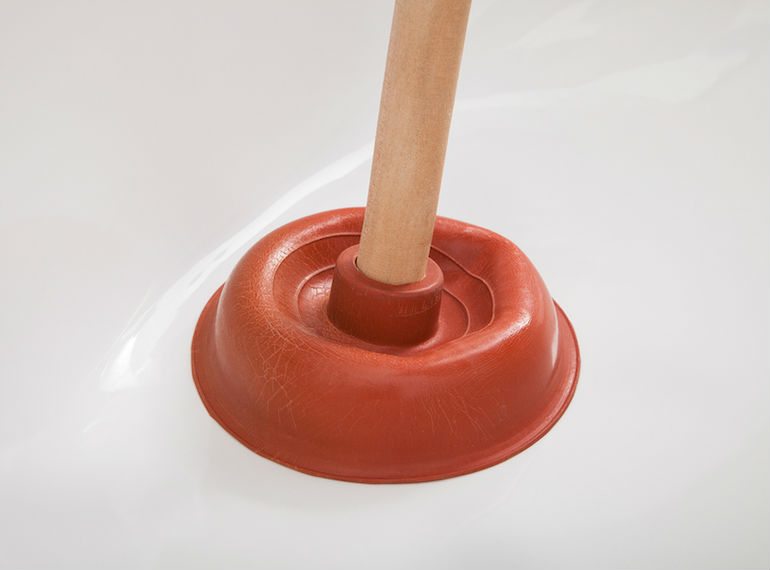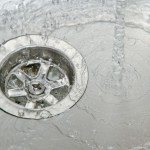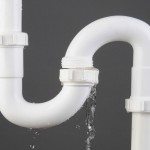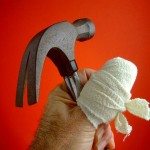Blocked Drains: What are they and how do I get rid of them?
They’re not as rare as you’d think – blocked drains are one of the most common reasons that plumbers get called out to a home. Blocked drains tend to occur at some stage in most homes and businesses, and need to be attended to immediately by an experienced plumber before the condition worsens.
Blocked Drains: What causes them?
We’ve serviced a great number of blocked drains, and over the years you notice patterns and trends emerge for the kinds of situations that lead to certain types of plumbing problems. For example, blocked drains can usually be attributed to one of the following: foreign objects or debris, broken pipes, incorrect pipe installation, water flow issues, or heavy rains or storms.
Foreign objects or debris: When you pour fats and soaps down the sink they are likely to be in a liquid state, though they often won’t stay this way as they make their way through your piping system. As they cool, they’ll solidify – and in the process, collect other materials such as food and hair. This prevents water from flowing freely, causing blocked drains. These aren’t limited to kitchen and bathroom sinks, though: blocked drains can also be caused by foreign objects (other than toilet paper) being flushed down the toilet, such as sanitary napkins or nappies.
Broken pipes: A blocked drain can be caused by a pipe break that obstructs the normal flow of water and leads to the pipe collapsing and blocking the drain. Pipe breaks tend to be attributed to poor installation, age and obstructive tree roots. In the case of an underground pipe breakage, repairs to the pipe can be lengthy and disruptive, depending on how difficult it is for the plumber to access the problem area. If you have underground pipes on your property, consider pipe relining technology to avoid having a pipe break in the future.
Incorrect pipe installation: With the rise in DIY repairs and renovations comes a rise in poorly installed plumbing and drainage pipes, which may lead to pipes becoming misaligned or collapsing completely, causing blocked drains. Note: DIY plumbing without a license is illegal in New South Wales. It can be more expensive and time-consuming to incorrectly install a pipe, have it break then hire a plumber to fix it for you, so skip the heartache and just get your local plumber to install and maintain your pipes from the start.
Water flow issues: Another issue with DIY plumbing is that often, incorrectly installed pipes will have inadequate falls to ensure adequate water flow. This will cause blocked drains, as particles and debris build up in the falls of the pipes.
Heavy rains or storms: Blocked drains may occur as a result of a heavy storm or prolonged downpour, due to leaves, dirt and other debris building up and blocking pipes. During extended periods of wet weather this can become an issue, as outdoor drains are generally not designed to handle consistently large volumes of water. Thus, it important to handle outdoor drain blockages as soon as possible, as they can cause flooding and damage to your property if they’re left unrepaired for too long.
Blocked Drains: What are the signs of a blocked drain?
While leaky taps are easily spotted, other plumbing issues may arise without you being able to detect them by sight or sound.
The following issues that may lead to blocked drains are easily detectable without needing to call a plumber:
- Pipe corrosion
- Tree root penetration
- Leaking joints
- Misaligned joints
- Broken pipes
- Voids in pipes
- Punctures in pipes
To see if one of the above issues has occurred, look for the following signs or test your plumbing with the following tests:
Standing water: If there are puddles of water around where the sewer pipe from your home meets with the city’s sewer system. If there are any soft spots around the yard in the vicinity of the sewer pipe and there hasn’t been a rain in a few days that may also be another indication of a break.
Smells like sewage: If it smells like sewage, it probably is sewage – coming out of a broken pipe.
Sitting around: If water is coming back into your tub or shower or you find that water isn’t draining from your sinks, this is another sign your pipes are blocked. Listen for the sounds of drains gurgling or observe if there are bubbles coming up in your toilet – these are additional signs of clogged pipes.
Flush it: If you find that the water bowl of your toilet does not fill to its original state after flushing it, that is a sign of a sewer pipe blockage.
Blocked Drains: How do I prevent them?
While a blocked drain isn’t the end of the world – or even the end of your sink – it does put the pipes out of commission until the blockage is removed. This can be avoided by following a few simple steps to your current cleaning schedule.
Weekly Drain Maintenance: Once a week, flush your drain out by firstly boiling a large pot of water. Pour one half of the pot down the drain. Wait 5 minutes and pour the rest down the drain. This will get any residue and buildup off the sides of your pipes.
Monthly Drain Maintenance: Use an enzymatic cleaner once a month. Using this, or another enzyme cleaner, once a month will clean out your pipes of heavier buildup not taken out by your weekly clean, will kill any lingering bacteria, help maintain your drain and keep odors out as well.
Drains With Disposals: If you have a drain with a disposal unit attached then you need to make sure you clean the blades. The easiest way to do this is by running orange/lemon peels and ice cubes and orange peels through it. This will knock of any residue on your disposal units’ blades. The peels also act to remove any odors and freshen up the disposal drain. Make sure to slice the peels into small pieces, because large peels could jam the disposal.
Seasonal Drain Maintenance: For a heavy duty clean you should flush the drain with baking soda and vinegar no more than 2-3 times a year. After allowing it to sit for a bit run hot water down the drain.
For assistance with a blocked drain, call the team at G.F. James today. You can save $25 off the service call when you book online, so what are you waiting for?










